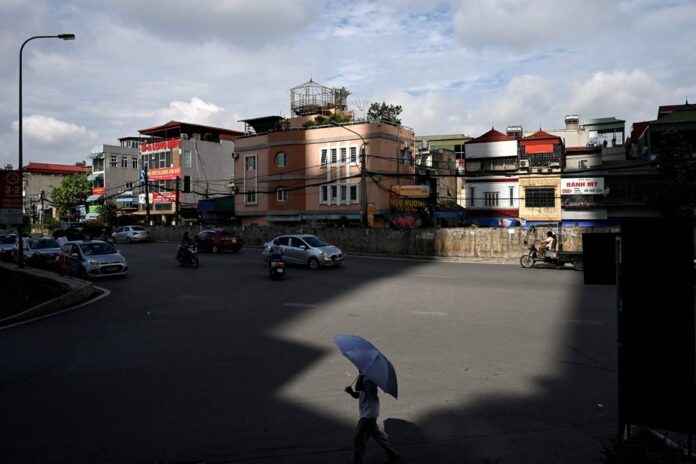(Hanoi) Vietnam recorded a temperature record of 44.1 degrees Celsius on Saturday at a weather station in the north of the country, an extreme phenomenon that is likely to happen again, according to scientists.
This survey was carried out by a station in Thanh Hoa province (Central North), said the National Center for Hydrometeorological Forecasting.
This figure beats the previous national record of 43.4 degrees Celsius, recorded on April 20, 2019 in Huong Khe district, central Ha Tinh province.
“This is a worrying record in the context of climate change and global warming,” climate science expert Nguyen Ngoc Huy told AFP from the capital Hanoi.
“I think this record will be broken many times over,” he added. “It confirms that extreme climate models turn out to be accurate.”
Scientists have shown that global warming exacerbates extreme weather conditions.
A farmer, Nguyen Thi Lan, told AFP that temperatures in the city of Danang (Central), increasingly hot, force agricultural workers to start their day earlier and earlier.
“We had to finish before 10 a.m. to avoid the heat,” she said.
Vietnam’s climate varies from north to south, but the whole country is now entering its hottest months.
Across the country, weather experts and authorities have advised people to stay indoors during the hottest hours of the day.
Danang Municipality has asked the government for help “to deal effectively with the heat, possible drought and lack of water,” according to state media.
The authorities have also asked the city’s water company to ensure that the water supply for domestic uses is sufficient.
By noon on Saturday, downtown Hanoi was almost empty, with many people staying indoors to avoid the sun.
Thailand’s meteorological agency reported a record high of 44.6°C in the western province of Tak. In Myanmar, media reported that a city in the east of the country recorded a high of 43.8°C.
Further west, Dhaka, the capital of Bangladesh, which has long suffered the effects of climate change, recorded its highest temperature since the 1960s.
In India, meteorological authorities said parts of the country were experiencing temperatures three to four degrees above normal.
A recent report by United Nations climate experts (IPCC) pointed out that each increase in global warming intensifies major natural risks (heat waves, extreme rainfall, droughts, etc.).


















